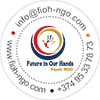About the Project
What kind of person can we call well-educated? Is it the same as twenty years ago? Definitely no. The world has changed, and the competencies we need to feel confident, to be successful, to improve society have changed as well.
What are these 21st-century competencies?
C — Communication: the ability to listen to, understand, convey and contextualize information through verbal, nonverbal, visual and written means.
C — Creativity: the ability to imagine and devise new, innovative ways of addressing problems, answering questions or expressing meaning through the application, synthesis or repurposing of knowledge.
C — Critical thinking: the ability to identify, analyze and evaluate situations, ideas and information to formulate responses and solutions.
C — Collaboration: the ability to work in a team towards a common goal, including the ability to prevent and manage conflicts.
The objectives for this training course:
• to transfer to participants the idea that the world has been undergone changes, and introduce them the necessary skills and competencies of the 21st century which should be implemented in the modern educational system;
• to develop critical thinking
• to develop creativity;
• to develop communication skills;
• to develop collaboration competence;
• to enrich the “toolbox” of youth workers and youth leaders with new methods and techniques that could be used in the process of non-formal education.
Methodology
The participants will be provided with an overview of 4C main 21st century skills/competences: Critical thinking, Creativity, Communication, Collaboration.
The participants will be provided with an overview of 4C main 21st century skills/competences: Critical thinking, Creativity, Communication, Collaboration.
The participants will have the possibility to “taste” these skills/competences and get the idea of how they can be developed and improved during the youth work within various youth/social/personal and professional development initiatives and projects. Some of the methods and tools that will be used to reach the objectives of the projects: brainstorming, world cafe, discussions, role plays, simulations; improvisation theatre; open space workshops; fairs;
digitalized activities and the development of the manual; various reflection methods and many more. In the end the participants and partner organizations will get the digital manual on the introduction to 4C skills/competences that due to its digital form may be applicable both for the off-line use in the direct work with participants and applicable specifically for the on-line use.
digitalized activities and the development of the manual; various reflection methods and many more. In the end the participants and partner organizations will get the digital manual on the introduction to 4C skills/competences that due to its digital form may be applicable both for the off-line use in the direct work with participants and applicable specifically for the on-line use.
Participants
36 participants from 11 countries: France – 3, Armenia – 4, Ukraine – 5, Georgia – 3, Russian Federation – 3 , Spain – 3 , Portugal – 3 , Croatia – 3 , Greece – 3 , Romania – 3 , Moldova- 3 ·
We are looking exactly for you, if you are:
• interested in the project topic;
• 18 and above;
•youth leader or beginner in youth work and training activities;
• motivated and open to the new experience and learning opportunities;
• open-minded and flexible towards new viewpoints and perspectives;
• ready to implement gained knowledge in further work;
• able to communicate and express yourself in English.
• interested in the project topic;
• 18 and above;
•youth leader or beginner in youth work and training activities;
• motivated and open to the new experience and learning opportunities;
• open-minded and flexible towards new viewpoints and perspectives;
• ready to implement gained knowledge in further work;
• able to communicate and express yourself in English.
Venue and Accommodation
ABOVYAN is a town and urban municipal community in Armenia within the Kotayk Province. It is located 16 kilometers northeast of Yerevan and is considered to be a satellite city of the Armenian capital. Therefore, Abovyan is generally known as the “northern gate of Yerevan”. During the project you will live in a HOTEL The rooms will be shared between 2-4 participants. The rooms have either twin or double beds, individualbathrooms. Bed linen and towels (one towel per person) are provided. All the following costs are covered in the frames of the Erasmus+ project: travel costs up to the limit; accommodation in Abovyan; three meals per day; materials for the activities.
How to Apply? https://docs.google.com/forms/d/1uUghFEm_kCppdlZ8Y-1ubysevTYF6jO0LOueTGGLomo/edit
Application Deadline: June 30

